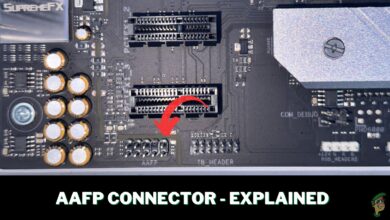What Type of Motherboard is Compatible with Intel Core i7 8700K and 7700K?
Motherboards are one of the most crucial components of a computer, especially a gaming one. As the name suggests, almost every component of a computer is related to the motherboard. A powerful motherboard can help you achieve greater processing frequencies, provide better cooling solutions, and also last much longer. To check compatibility of your motherboard for processors, you need to confirm the socket of that motherboard and the processor. If they match, then you need to make sure that they are compatible with each other as latest Intel’s processors use the same socket but do not support older motherboards. For example, Intel Core i7-8700K is not compatible with the Z270 motherboards even though both use the socket LGA-1151. f you can’t decide for yourself then take a look at our picks for the Best Motherboards for Intel Core i7-8700K
It is true that both the i7-7700K and i7-8700K share the same socket but due to architectural differences, i7-8700K requires a 300-series motherboard while i7-7700K uses a 200-series motherboard. In this article, we will dive deep into various motherboards and describe the essence of each of them.
Various Elements of a Motherboard
A motherboard should be considered very precisely according to your needs. You do not want to cheap out on your motherboard if you require a powerful PC and similarly, you should not waste money on a powerful motherboard if all you are going to do with your PC is listen to some songs or watch some movies. Let’s talk about the various features and qualities that are linked with motherboards in various ways.
Form Factor of a Motherboard
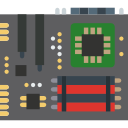 Motherboards come in various form factors and you should consider a motherboard after checking the compatibility with your PC case. Major form factors are E-ATX, ATX, Mini-ATX, Micro-ATX, and Mini-ITX, listed respectively in terms of their size. You should consider the biggest form factor supported by your PC case for both the i7-7700K and i7-8700K as it will provide you a lot of extra slots along with an efficient cooling mechanism. If you want to build a portable system, then Mini-ITX would be the perfect choice as it packs all of the basic features into a minimalistic design.
Motherboards come in various form factors and you should consider a motherboard after checking the compatibility with your PC case. Major form factors are E-ATX, ATX, Mini-ATX, Micro-ATX, and Mini-ITX, listed respectively in terms of their size. You should consider the biggest form factor supported by your PC case for both the i7-7700K and i7-8700K as it will provide you a lot of extra slots along with an efficient cooling mechanism. If you want to build a portable system, then Mini-ITX would be the perfect choice as it packs all of the basic features into a minimalistic design.
Variants of a Motherboard
 There are a lot of variants for every chipset, where some provide better features while others focus on the cost-reduction. Since both the processors i7-7700K and i7-8700K are high-end processors, you should carefully decide the motherboard variant, probably the one providing a great cooling solution and aesthetics. Also, as we mentioned earlier, a processor like i7-7700K should be used with a Z-series motherboard, so if you are considering to buy one of those, then make sure to get a Z-series motherboard
There are a lot of variants for every chipset, where some provide better features while others focus on the cost-reduction. Since both the processors i7-7700K and i7-8700K are high-end processors, you should carefully decide the motherboard variant, probably the one providing a great cooling solution and aesthetics. Also, as we mentioned earlier, a processor like i7-7700K should be used with a Z-series motherboard, so if you are considering to buy one of those, then make sure to get a Z-series motherboard
What Chipset Should You Consider?
There are a lot of chipsets in motherboards, each having their own feature-sets. A Z-series motherboard is best for a splendid gaming experience as it provides various OC capabilities which other chipsets lack. Also, it features much better power delivery and cooling solutions so that overclocking could be done efficiently. Z370 motherboards are capable of supporting i7-8700K while Z270 motherboards cannot be used with 8700K and only support i7-7700K or other seventh generation processors. Since these processors are ‘K’ variant, a Z-series motherboard would be a great choice to properly use the potential of such processors. Here’s our list of the best motherboards for i7-7700k (Z270 here) as well.
B-series
A B-series motherboard is a mediocre one which is generally used to carry out basic functionalities and does not support any kind of overclocking features, although XMP support is usually added to allow some higher-frequency RAM sticks. Here is in-depth Article on What Ram is Compatible with 7700k and 8700k. It is a business-oriented chipset as the name suggests and should not be used if you want a powerful computer. B360 supports i7-8700K processor while B250 can be coupled with an i7-7700K.
H-series
An H-series motherboard is also less powerful than Z-series and does not provide OC capabilities. Moreover, some other features are also cut-out such as the number of PCIe-Lanes. It is important to note that H-series often have more than one variant where some variants lean towards Z-series motherboards and the others are even lower-end than the B-series motherboards. H370 and H310 motherboards can be used with 8th-generation processors while H270 motherboards support the 7th-generation processors
Q-series
A Q-series motherboard also exists but is a little rare and usually comes with OEM PCs. It is quite similar to B-series motherboards and is considered for business applications, providing various connectors and ports which are generally not available with consumer-based motherboards. Unless you are a making a business-oriented rig, you should definitely not look for this chipset as it will cost more and will not provide much of a value.
Compatibility
Since the sixth generation of Intel processors also uses LGA-1151 socket, most of the motherboards supporting 6th-generation processors also support the 7th-generation processors. Basically, the 100-series motherboards were used for the 6th-generation processors but if you are considering to buy such a motherboard for your i7-7700K, make sure that the manufacturer of that motherboard has released a BIOS update, without which the motherboard cannot possibly support this processor.
Similarly, at the upper end, Z390 motherboard can also be used with Core i7-8700k processor while it is officially released for 9th-generation processors. The major differences between a Z370 and Z390 motherboard are the inclusion of built-in Wi-Fi and USB 3.1 controller which might not interest you, in which case you should consider Z370 based motherboard to save money.
Our Verdict
We believe that a Z270 for Core i7-7700K and a Z370 for Core i7-8700K should be your top priority but if you are not in a position to buy such a motherboard or you simply do not want to overclock your processor (waste of a ‘K’ variant processor) then you can also consider buying a B-series or an H-series motherboard.
| # | Preview | Name | VRM phases | NVIDIA SLI Compatibility | AMD Cross Fire X Compatibility | RGB | Purchase |
|---|---|---|---|---|---|---|---|
| 1 | 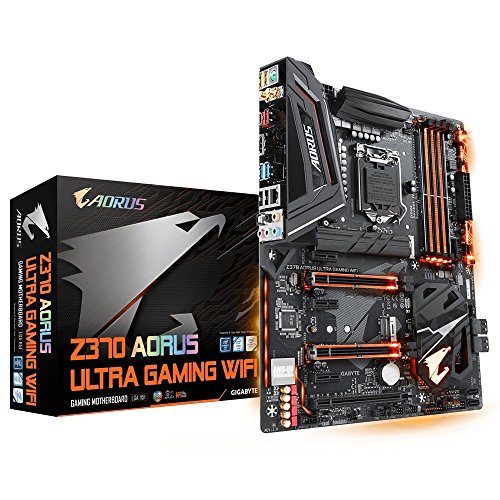 | GIGABYTE Z370 AORUS Ultra Gaming | 11 |  |  |  | Check Price |
| 2 | 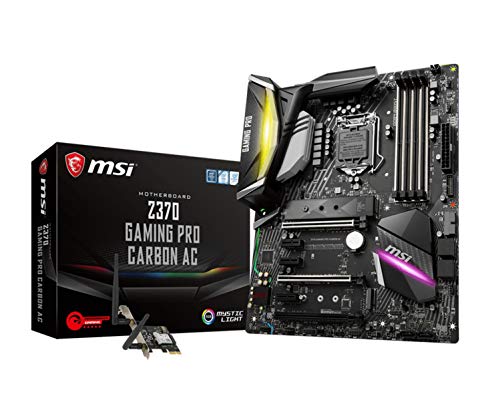 | MSI Z370 GAMING PRO CARBON AC | 10 |  |  |  | Check Price |
| 3 | 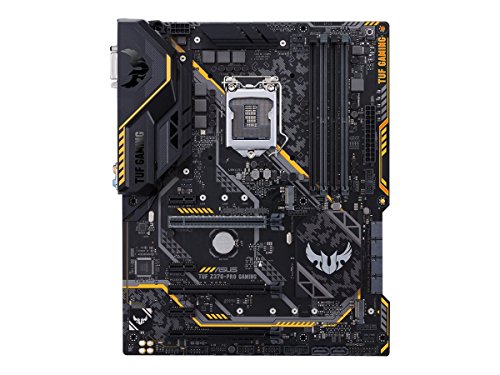 | ASUS TUF Z370-PRO Gaming | 10 |  |  |  | Check Price |
| 4 | 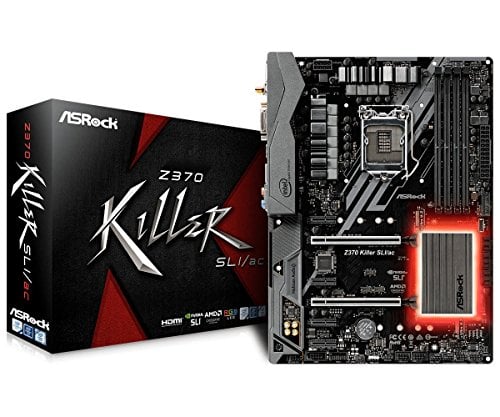 | ASRock Z370 Killer SLI | 10 |  |  |  | Check Price |
| 5 | 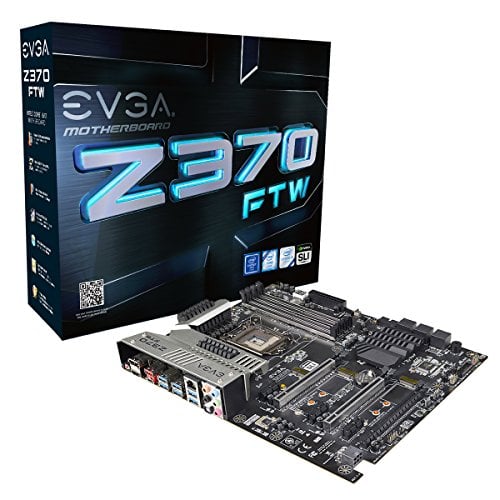 | EVGA Z370 FTW | 11 |  |  |  | Check Price |
| # | 1 |
| Preview |  |
| Name | GIGABYTE Z370 AORUS Ultra Gaming |
| VRM phases | 11 |
| NVIDIA SLI Compatibility |  |
| AMD Cross Fire X Compatibility |  |
| RGB |  |
| Purchase | Check Price |
| # | 2 |
| Preview |  |
| Name | MSI Z370 GAMING PRO CARBON AC |
| VRM phases | 10 |
| NVIDIA SLI Compatibility |  |
| AMD Cross Fire X Compatibility |  |
| RGB |  |
| Purchase | Check Price |
| # | 3 |
| Preview |  |
| Name | ASUS TUF Z370-PRO Gaming |
| VRM phases | 10 |
| NVIDIA SLI Compatibility |  |
| AMD Cross Fire X Compatibility |  |
| RGB |  |
| Purchase | Check Price |
| # | 4 |
| Preview |  |
| Name | ASRock Z370 Killer SLI |
| VRM phases | 10 |
| NVIDIA SLI Compatibility |  |
| AMD Cross Fire X Compatibility |  |
| RGB |  |
| Purchase | Check Price |
| # | 5 |
| Preview |  |
| Name | EVGA Z370 FTW |
| VRM phases | 11 |
| NVIDIA SLI Compatibility |  |
| AMD Cross Fire X Compatibility |  |
| RGB |  |
| Purchase | Check Price |
Last Update on 2025-04-03 at 02:03 / Affiliate links / Images from Amazon Product Advertising API
